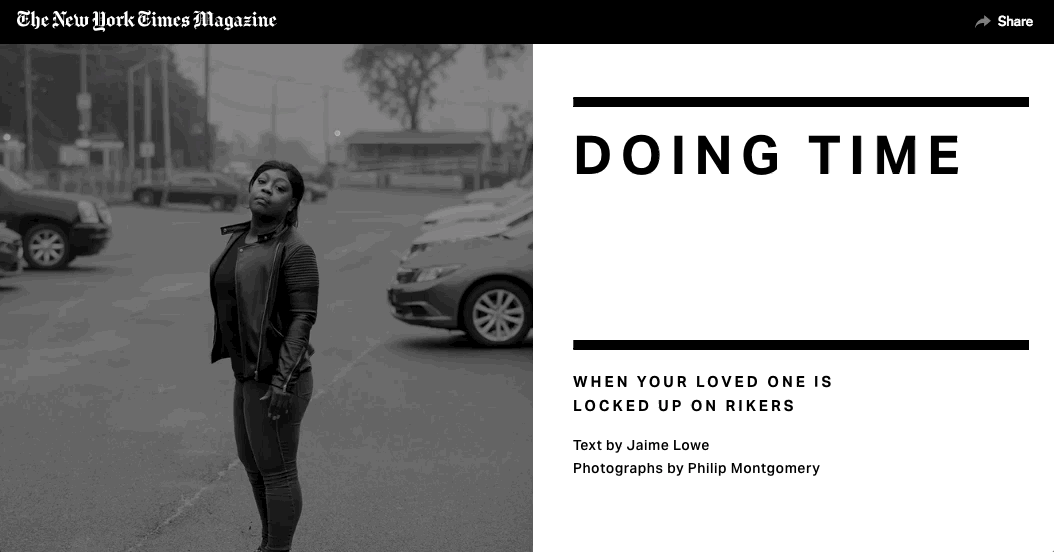
Let’s be honest: Are you going to read this or skim this?
In a land of feeds, tidbits, and bullet points, readers don’t often get to the end of a piece — let alone absorb each sentence along the way. But what if you couldn’t comment until you actually read the whole piece? (We see you moving toward that close-the-tab button — hold on.) What if there was a gauge in your browser bar recording and showing you how much you’d read of a piece? Would you — or your readers — read more thoroughly?
That’s the schtick of reallyread.it, a startup finishing up Matter’s eighth cohort and developed by Bill Loundy and Jeff Camera. The pair, buddies since preschool with experience in the startup world, were frustrated by the unproductive comments sections they saw attached to news articles. So they decided to create a mechanism for encouraging would-be commenters to truly read a piece before commenting on it. (Imagine how much energy we would save not asking: “But have you read the piece?”)
being a journalist on twitter pic.twitter.com/6fBP4qLPTp
— Cooper Fleishman (@_Cooper) June 6, 2018
“The idea of reading an article and scrolling down to the bottom and participating there continues to be unfathomable to me. It’s just such an anarchy down there,” Loundy said.
So…why focus a startup on saving them?
Loundy believes that building a system to ensure readers read the article before commenting encourages time spent on the page and loyalty over time, both wins for publishers in need of ad-spend and reader revenue. But he also thinks that creating a space for readers to interact with other users who have also read the same piece — guaranteed — could help the Internet be a better place for them, too.

“All of these not-reading activities we do online are kind of making us less happy and less informed,” he said. (There are some studies that back that up.) “It is it makes us stupid and sad and disconnected from the world, but reading is something that makes us feel rich and inspired.”
The company’s main focus currently comes in the form of a Chrome extension that tracks what you click on and how thoroughly you read it. Essentially, the tool is a highlighter moving behind the scenes following your hypothetical reading pace, based on the combination of time spent on the page, scrolling pace, and the average reading pace. The extension shows you how long the article should take you to read, the percentage you’ve read so far (red while in process, but a rewarding green once you hit 90 percent). The site saves your reading history to your account and also compiles all users’ history on a platform through the homepage, weighted by the number of users who have read the pieces, the number of comments, article length, and timeliness. This way, users can see what others are reading and their comments to, hopefully, join the conversation as well — after reading the particular piece the user wants to comment on. This is how it looks behind the scenes (not what users see):

The platform is a bit quiet, with 300 users chipping in their articles and adding a few comments here and there within reallyread.it. But Loundy and Camera hope to move beyond the Chrome extension and cultivate more of a community on the homepage, keeping one commenting chain for each article filtered into the platform to promote rigorous conversations among those who, again, have actually read the piece. “Conversations with people when they’re anchored in a shared experience, are significantly better,” Loundy believes. “If we can get people reading things, civil discourse will follow.” Debates on social media, he argues, don’t quite cut it.
They’re also trying to license their (patent-pending) mechanism to publishers for their own comments sections. It’s another attempt at restoring the section’s civility, not unlike Norwegian broadcaster NRKBeta’s try at parsing the comments section with a reading comprehension quiz. But NRKBeta’s editors found that readers were using the quiz more as a game than for the commenting privilege (and they weren’t doing too hot on the quiz anyway). Many news organizations have shut down comments altogether, while The New York Times and The Atlantic tease out other possibilities with automation and reverting to a letters-to-the-editor model, respectively. Talk is another thoughtful commenting system used by The Washington Post and dozens of other publishers, developed by the Coral Project — which is now searching for a new home after three years of incubation at the Mozilla Foundation.But Loundy isn’t deterred: “The longer-term vision for the company is that we want to be the reading certification of record across the web and we want our technology all over the place, and then all the comments always end up in a singular spot.”
He also suggests that reallyread.it could work in industries beyond journalism, like firms ensuring their employees have actually read compliance materials or doctors making sure their patients read health forms. But as their time at Matter comes to an end, reallyread.it’s attention is split upon bolstering the community’s reading habits through a Pizza Hut-kid’s-reading-program-inspired reading challenge, finetuning a soon-to-launch mobile app, and contemplating prioritizing the chicken or the egg: making sure people have a space to comment productively, or making sure people have really read it.
“When we started using this thing on ourselves, we were shocked and appalled about what it was telling us of our own reading habits,” Loundy said. (Note: When I started using reallyread.it ahead of this story, I was too!) “It was that moment where it was like, ‘We’re onto something.’ Even people who think they are good readers probably have a rude awakening to see just how much time they spend on a page.”